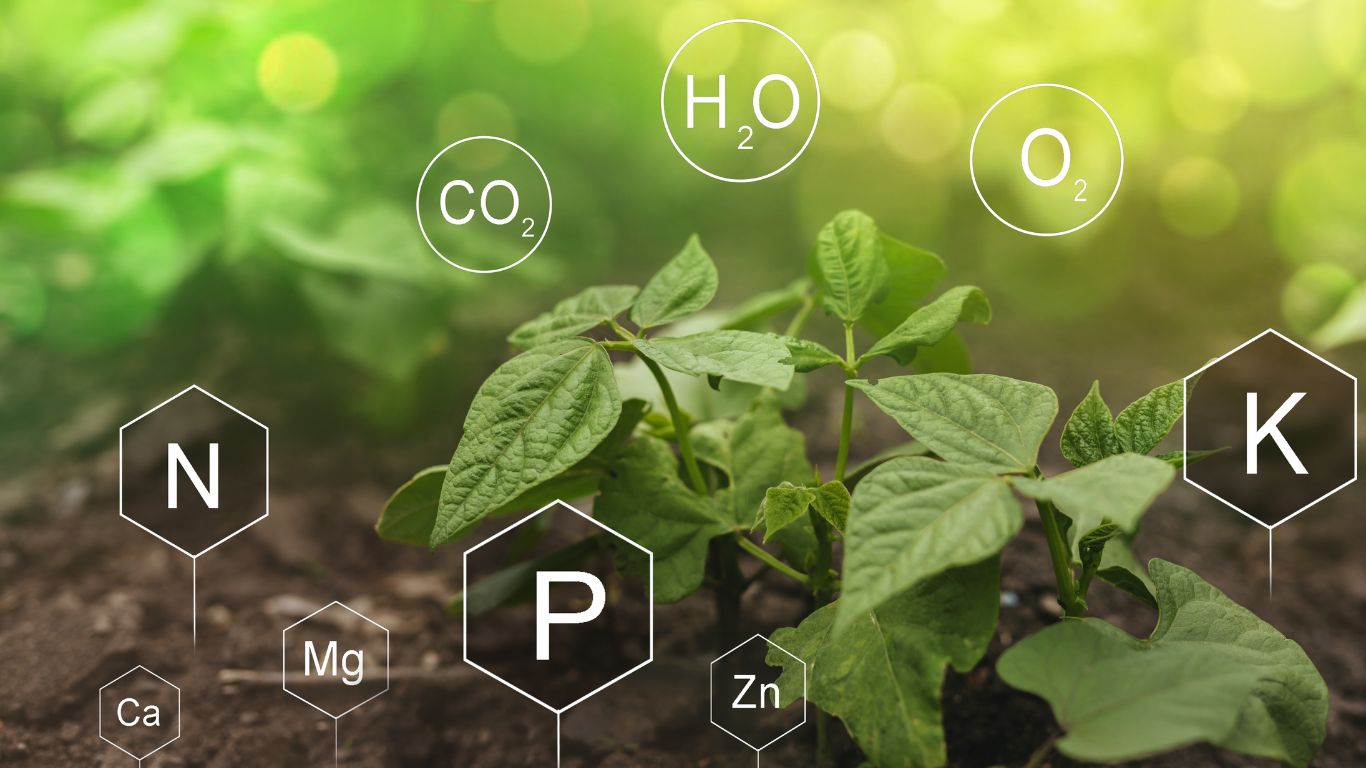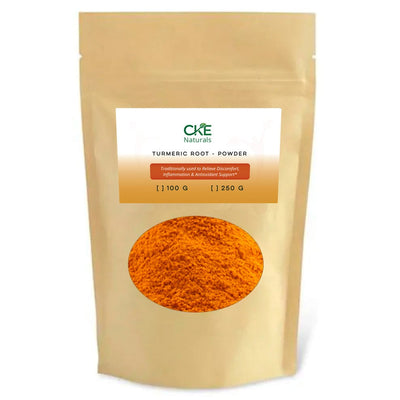Why Dried Herbs Are A Hidden Gem For Strengthening Immunity?
For centuries, various cultures have depended on herbs for their flavors and potential medicinal properties. In today's age of pharmaceutical drugs and rapid medical advancements, the power of fresh to dried herbs, especially dried ones, can sometimes be overlooked.
This article delves into the incredible benefits of dried herbs and how they can become your secret weapon for bolstering immunity.
The Immune System: A Brief Overview

The immune system acts as the body's army against invaders that might cause harm, such as bacteria, viruses, and other pathogens. This complex system comprises cells, proteins, tissues, and organs that work synergistically.
The main components include white blood cells, antibodies, the complement system, the lymphatic system, the spleen, bone marrow, and the thymus. Each plays a specific role in identifying and neutralizing threats.
The immune system is categorized into two subsystems: the innate (non-specific) immunity and the adaptive (specific) immunity. The innate system serves as the first line of defense, responding to all pathogens in a generalized way.
On the other hand, the adaptive system remembers specific pathogens, ensuring a faster and stronger response on subsequent encounters.
Strengthening the immune system is crucial, especially with the prevalence of lifestyle diseases and an increasingly polluted environment. One natural method of bolstering this system is consuming fresh to dry herbs.
Benefits of Dried Herbs

The utilization of dried herb has been a cornerstone of various cultures and traditions for millennia. Their longevity, potency, and convenience have made them preferred choices in multiple applications, from culinary dishes to medicinal concoctions. But what makes dried herbs a true treasure trove of benefits?
1. Preservation of Nutrients

Consistency in Phytochemical Profiles: When done through the best way to dry herbs, the drying process ensures that the herbs retain their signature phytochemical profiles. These profiles constitute a specific mix of compounds, like flavonoids and antioxidants, giving each herb unique therapeutic properties.
Richness in Minerals: Dried herbs like nettle or dandelion are often significant sources of essential minerals. For instance, dried nettle contains an abundance of calcium, magnesium, and iron.
2. Convenience and Accessibility

Year-round Availability: While fresh herbs are seasonal, their dried counterparts are available throughout the year, ensuring you don't miss out on their benefits during off-seasons. It often is a winning point during the debate of herbs dried vs fresh.
Space-saving: Fresh herbs, with their volume, can occupy considerable space. In contrast, dried herbs are compact, allowing for efficient storage even in limited spaces.
Culinary Versatility: Dried herbs can be incorporated into many dishes, from stews and roasts to baked goods, seamlessly lending their flavors and health benefits. However, herbs fresh to dry are equally aromatic.
3. Potency and Concentration

Enhanced Flavor Profile: Many chefs and home cooks alike appreciate the concentrated flavors that dried herbs bring to the table. A pinch of dried rosemary or thyme can significantly elevate the taste profile of a dish. That is why fresh vs dried herbs isn’t a problem during the off-season.
Medicinal Strength: In traditional medicine systems, such as Ayurveda or Traditional Chinese Medicine, the increased potency of dried herbs is often preferred, especially in preparations that require strong, concentrated remedies. The choice between herbs fresh vs dried is quite clear for medicinal purposes.
4. Economic Benefits

Cost-Effective in the Long Run: Purchasing dried herbs can sometimes be more cost-effective. Given their longer shelf life and concentrated nature, one tends to use less over time compared to the fresh variety. All you need is to know how to dry herbs from garden.
Reduced Wastage: Fresh herbs often risk spoilage if not used within a short span. Dried herbs, with their extended shelf life, reduce this wastage, ensuring you get more value for your money.
5. Broader Spectrum of Choices

Global Access: The dried form allows for herbs that are not native to one's region to be accessible. This globalization of herbs means that someone in North America can easily benefit from exotic herbs like ashwagandha or gotu kola, which are native to Asia. Fresh herbs to dried ones are always in demand.
Exploration of Ancient Remedies: With the accessibility of a broader range other than common dried herbs, modern-day enthusiasts can delve into ancient remedies and preparations. Dried herbs provide an avenue to reconnect with age-old wisdom.
Top Dried Herbs for Boosting Immunity

Echinacea
Originating from North America, echinacea has been utilized by indigenous people for centuries. Scientific studies suggest that echinacea can increase the number of white blood cells, enhancing the body's ability to ward off colds and flus. It is used in many herbal extracts.
Elderberry
These deep-colored berries are not just delicious but pack a punch when it comes to health benefits. Rich in antioxidants, especially anthocyanins, they assist in neutralizing harmful free radicals. Some studies have suggested that elderberry extract can hinder the propagation of the influenza virus.
Astragalus
Astragalus roots are a staple in traditional Chinese medicine with compounds like flavonoids, saponins, and polysaccharides. These elements collectively offer antioxidative and anti-inflammatory effects. Additionally, Astragalus might help increase the production of white blood cells. It is among the widely known anti-inflammatory natural herbs.
Turmeric
A golden herb from Asia, turmeric's primary active compound, curcumin, has become the subject of numerous studies. Curcumin offers robust anti-inflammatory effects, potentially regulating immune responses and preventing excessive inflammation which could harm the body. You can easily get it from an herbal supplement store.
Ginger
This rhizome used both as a spice and medicine, contains gingerol, a substance with powerful antioxidative and anti-inflammatory properties. Ginger has also been shown to have thermogenic properties, promoting sweating and natural detoxification.
Integrating Dried Herbs into Your Daily Routine

Teas and Decoctions: Brewing tea using dried herbs is a delightful and therapeutic method. For a more concentrated dose, one can make a decoction by simmering the herbs for a longer period.
Powders and Seasonings: Many dried herbs can be ground into a fine powder and added to smoothies, oatmeal, or dishes. They can also be sprinkled atop meals for added flavor and health benefits.
Capsules and Supplements: For those who prefer a measured dose or find the taste of some herbs too strong, capsules and tablets offer a convenient alternative.
Herbal Infused Oils: Infuse dried herbs in oils like olive or coconut. This infused oil can be consumed directly, added to dishes, or used topically.
Potential Side Effects and Considerations

Pregnancy and Lactation: Certain herbs should be avoided or taken cautiously during pregnancy and lactation. For instance, high doses of turmeric might pose risks during pregnancy. Always consult a healthcare professional to ensure the safety of herbal consumption during these sensitive periods.
Varied Responses: Every individual's body reacts differently. What might be beneficial for one person could have a neutral or even negative impact on another. It's crucial to listen to your body and note any changes or reactions after starting a new herb.
Quality and Source: The efficacy and safety of dried herbs largely depend on their source. Herbs contaminated with pesticides, heavy metals, or adulterants can do more harm than good. Always source from reputable sellers and, when possible, opt for organic.
Dosage: With the increased potency of dried herbs, adhering to recommended dosages is essential. Overconsumption can lead to toxicity or other adverse effects.
How to Choose the Right Dried Herbs

Selecting the right dried herbs is as essential as incorporating them into your routine. Here's a guideline:
Research the Brand: A reputable brand usually has stringent quality checks and provides a certificate of analysis that offers insights into the herb’s purity and potency.
Read Reviews: Customer reviews can offer real-world feedback on the product's efficacy.
Look for Certifications: Organic certifications or seals from recognized herbal associations can indicate a higher standard of quality. It ensures the team knows how to dry fresh herbs.
Check Packaging: Packaging can provide clues about quality. Herbs stored in airtight, opaque containers tend to have longer shelf lives, preserving their potency.
The Synergistic Effects of Combining Herbs

It's not just individual herbs that offer benefits; in many traditional medicine practices, combinations of herbs are used to create synergistic effects, amplifying the benefits. For instance:
Turmeric and Black Pepper: When combined, the piperine in black pepper enhances the absorption of curcumin in turmeric, increasing its efficacy.
Echinacea and Goldenseal: Often found together in immune-boosting supplements, this combination is believed to enhance the body's defense against infections.
Ginger and Lemon: A common pairing in teas, these two together can offer a powerful boost of vitamin C and antioxidants.
The Importance of a Holistic Approach

While dried herbs are powerful, they should be a part of a holistic approach to health. This means combining herbal supplementation with a balanced diet, regular exercise, adequate sleep, and stress management techniques.
Relying solely on herbs, no matter how potent, won't offer optimal health benefits if other aspects of health are neglected. The combination of all these elements, working in harmony, creates a robust immune system and overall wellbeing.
FAQs
The Bottom Line:
Incorporating dried herbs into one’s routine is like tapping into ancient wisdom. The myriad benefits they offer, especially to the immune system, are invaluable in today’s world. However, like any powerful tool, they must be used with knowledge and respect.
One can harness the immense power of these natural wonders by understanding their potential, adhering to recommended dosages, and ensuring quality. If you want to buy ginseng herb, organic turmeric, or any other dried herbal supplements, CKE Natural is the best and most authentic place for it.



